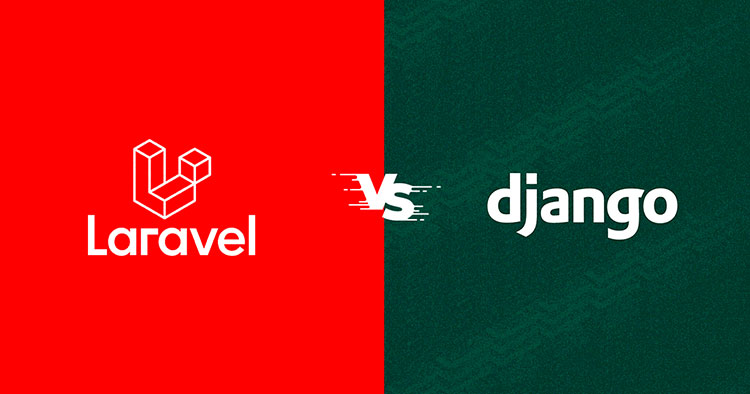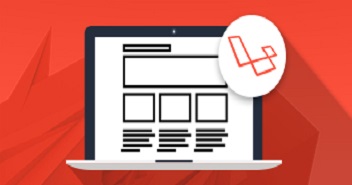
In spite of the popularity and the rising demand for versatile development, web development has been getting a huge amount of consideration and the advances are evolving quite rapidly. Two common technologies within the web development world are Django and Laravel, which are back-end development systems.
Django is a Python-based open-source framework for web development that uses the Model View Template (MVT) for design. It’s a favorite for complex web applications.
Laravel is a PHP-based open-source system for web development that uses the Model View Controller (MVC). It has a rich set of functionalities and can be used to create a Content Management System (CMS) application.
An Insight looks at Web Frameworks
According to the Python Developers Survey 2020 , Django is the second most popular Python Framework. However, it ranks ninth among all existing web frameworks based on the latest Stackoverflow survey . As for Laravel, the active number of websites using it is over 1,723,068 and counting. Laravel is said to be the most used PHP framework in 2022.
So which is right for your web application? Well, it all depends on your needs. Let’s compare Laravel and Django’s features and explore them in detail .
Laravel vs Django

What is Laravel?
Laravel was created by Taylor Otwell in 2011, and can be used to create a CMS in radically reduced development time. It’s known for making developers’ lives easier thanks to its superior framework and other in-built features.
Notable Laravel Features and Benefits
Template Engine
Laravel’s built-in lightweight layout produces eye-catching formats using dynamic content seeding. It also gives a strong structure to numerous widgets joining CSS and JS code.
MVC Architecture Support
Laravel supports the MVC architecture, which ensures separate business logic and presentation layers. This incorporates many built-in functions, and increases performance and security while optimizing the application’s adaptability.
Security
Laravel offers exceptionally strong web application security. It uses hashed and salted password components so the password is never saved as plain content within the database. Moreover, It uses the “Bcrypt Hashing Algorithm” for creating an encrypted password.
It also uses sets of SQL statements that anticipate SQL injection attacks.
Coding Authorization
Laravel has a consistent technique that removes inconsistent values or values that cannot be assigned to a given variable in the code.
Eloquent Object Relational Mapping and Implementation
Laravel uses Eloquent, an object relational mapper (EORM) that incorporates an uncomplicated PHP Active Record implementation. This lets web application engineers compose database questions with PHP syntax instead of composing SQL code. Eloquent is comparatively faster than previous PHP systems.
Enable Libraries and Modular Functionalities
Laravel facilitates engineers through pre-installed Object-Oriented and Modular libraries, which are not available in a lot of other PHP frameworks. For instance, the Authentication library is very basic in implementation and has multiple functions.
In-built tools
Whether you’re experienced or just a beginner in writing complex applications, Laravel can help you overhaul your approach. That’s due to the framework’s pre-built extensions, high-quality community libraries and tools and other in-built tools that all seamlessly work alongside each other. Laravel offers tools such as Laravel Debugbar, IDE Helper, Laravel Tinker and Laravel Socialite.
Compatibility
Laravel uses Artisan to make commands for you. Artisan-generated code will have all the right naming traditions, interfacing, namespaces, and boilerplate code already set up. Also, it is very simple to make your own generators for your code if needed.
Nothing as Easy as Deploying Laravel Apps on Cloud
With Cloudways, you can have your PHP apps up and running on managed cloud servers in just a few minutes.
What is Django?
Developed in 2005 by Django Software Foundation, Django is an exceptional open-source framework because of its stand-alone features for development and testing. Django makes it easier to handle web applications which get complex over time
Notable Django Features and Benefits
It’s Versatile
Django can be used to build nearly any sort of site. It can work with any client-side system, and can provide content in nearly any organization including HTML, RSS bolsters, JSON, and XML.
Fast Processing
Django’s major advantage over other frameworks comes from its distinctive architecture. Django employs the MTV architecture, which makes the entire process of transmitting over the Internet less demanding and faster. Its servers have excellent uptime and speed as well.
It’s Secure
Django has a security framework built to “do the right things” to secure the site. Engineers therefore have a secure way to oversee user accounts and passwords, and to avoid common mistakes like putting session data in cookies where it is vulnerable.
It’s Scalable
Django uses component-based “shared-nothing” engineering. Each part of the design is free of the others and can subsequently be replaced or changed if required.
This clear division between the diverse parts implies that it can scale for expanded activity by including equipment at any level: caching servers, database servers, or application servers. The busiest applications effectively scaled Django to meet their requests.
Object Relational Mapper (ORM)
Django’s ORM is clever engineering that allows simple record database management so you can interact with the database. With this in place, all an engineer requires is fundamental knowledge of SQL.
In-built tools
Django offers tools like emailing systems, algorithm-based generators, admin dashboards, investment fund management interfaces, data analysis tools, verification systems, and more. These tools reduce the code time required to complete projects. Moreover, it helps you to write better code because it encourages you to follow best practices and industry standards.
Compatibility
Django is compatible with the architecture of microservices. It enables rapid deployment, versatility, and built-in security. You can scale a Django project quickly by breaking it into smaller microservices with different responsibilities and functionalities. In addition, Django offers multilingual support via its internationalization framework, which makes it compatible with different websites.
Conclusion: Which One is Right?
Django and Laravel are actually quite similar in terms of the applications they can develop. The major difference lies in the web application framework, where the former supports Python and the latter PHP. This translates to some differences in features and libraries to meet different requirements.
Django comes out on top in terms of speed (thanks in part to the faster Python), scalability, and maintenance. Its built-in tools include decorators, SEO tools, and third-party libraries. Laravel, on the other hand, is easier to use thanks to its simpler features and contains strategy infusion as well.
In the end, the choice of framework comes down to its language and features.


